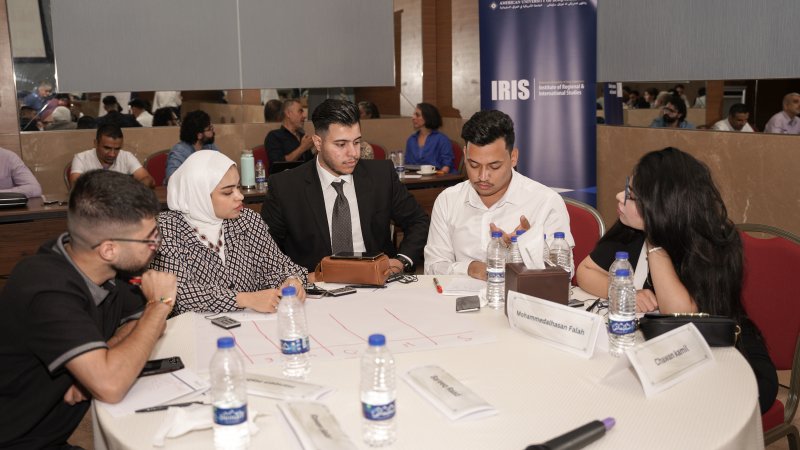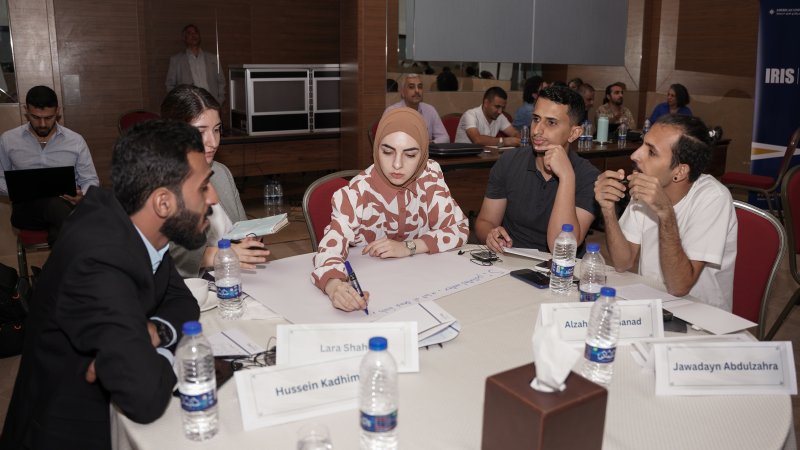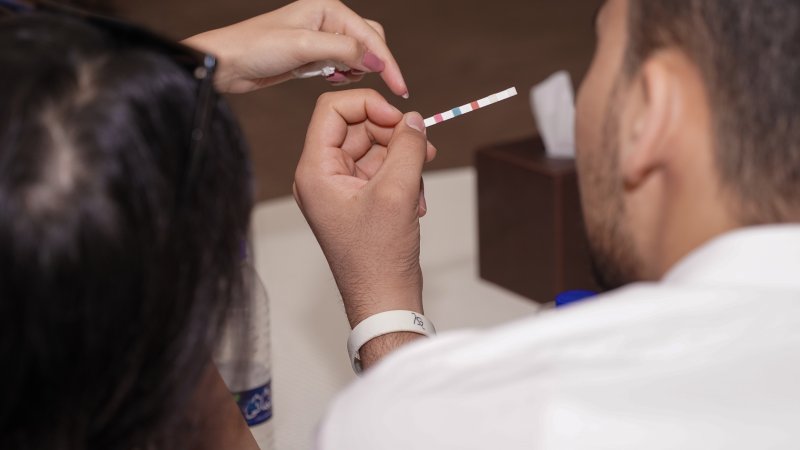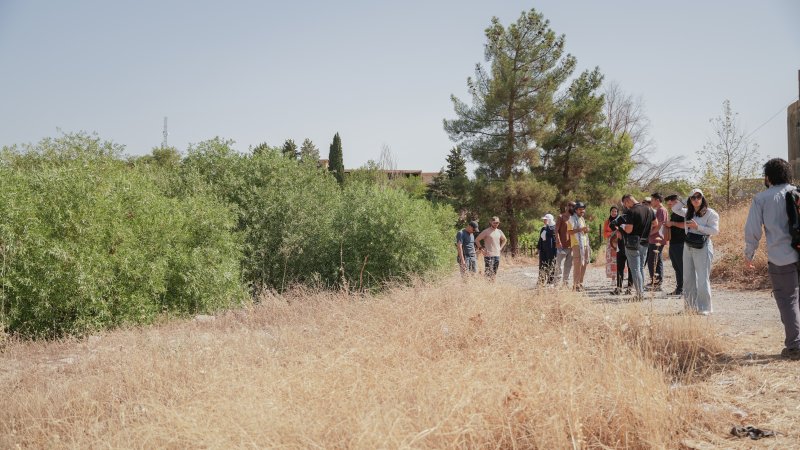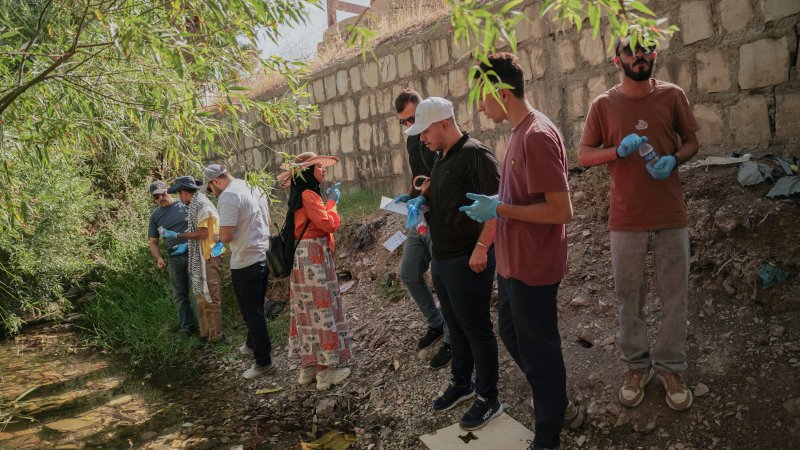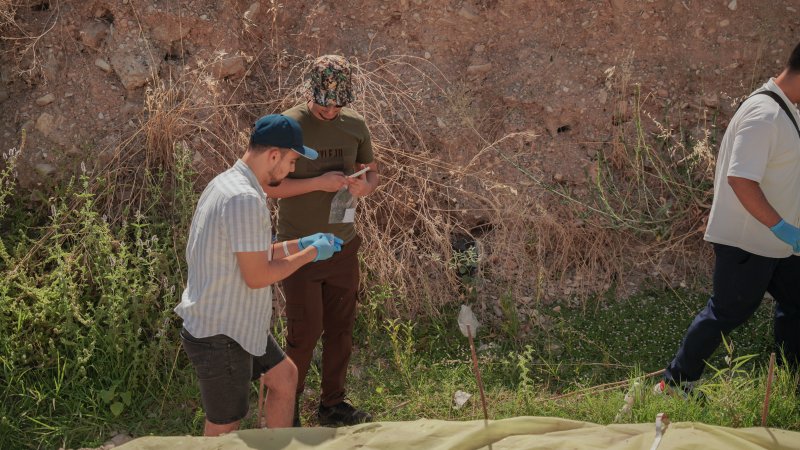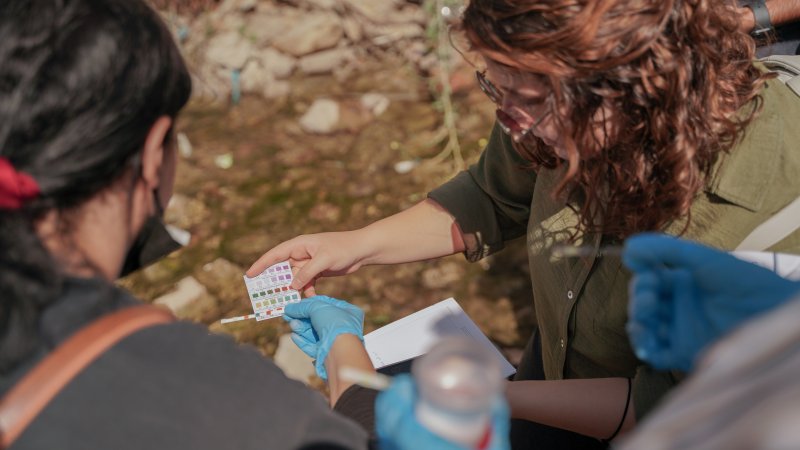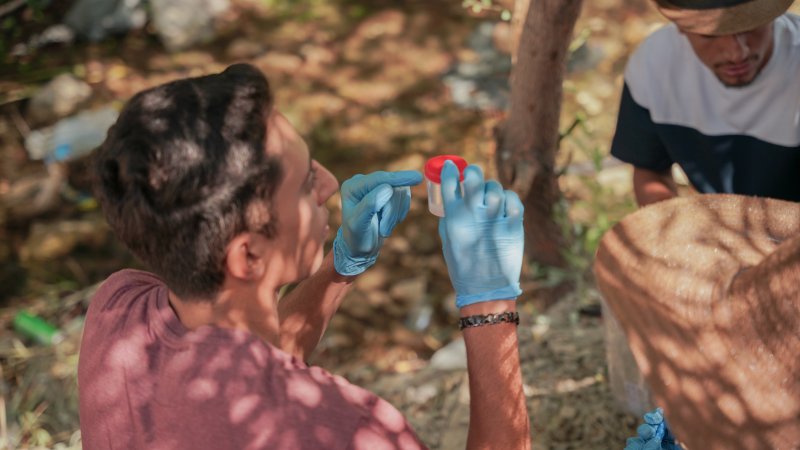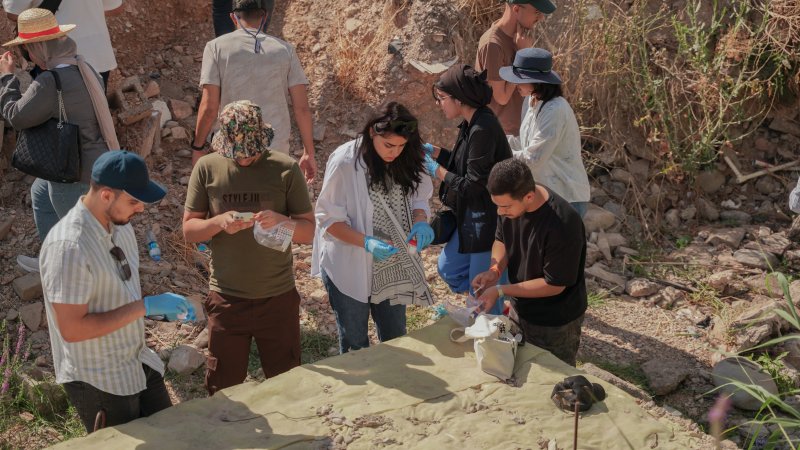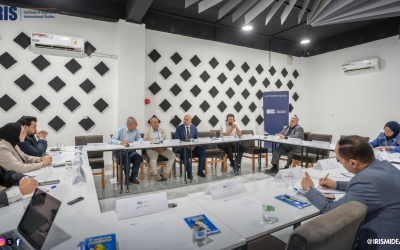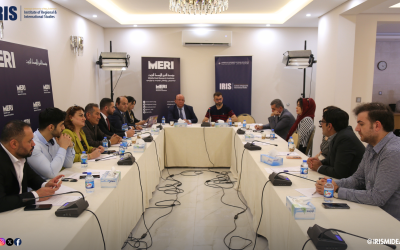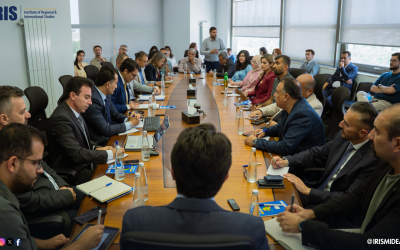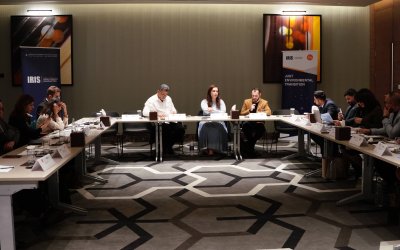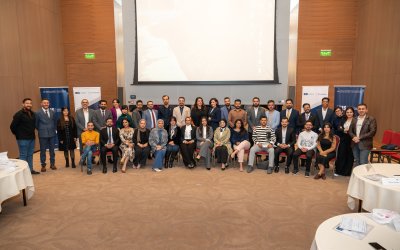In early August 2024, IRIS hosted a three-day Citizen Science Workshop in Sulaymaniyah, part of the broader "Citizen Science & Environmental Action Network in Iraq" initiative. This workshop aimed to equip 30 university students from Baghdad, Basra, and Sulaymaniyah with the skills to monitor environmental pollution in their communities—an especially urgent task in a country where years of conflict have not only caused widespread environmental degradation but also weakened the state's ability to effectively manage and respond to these challenges.
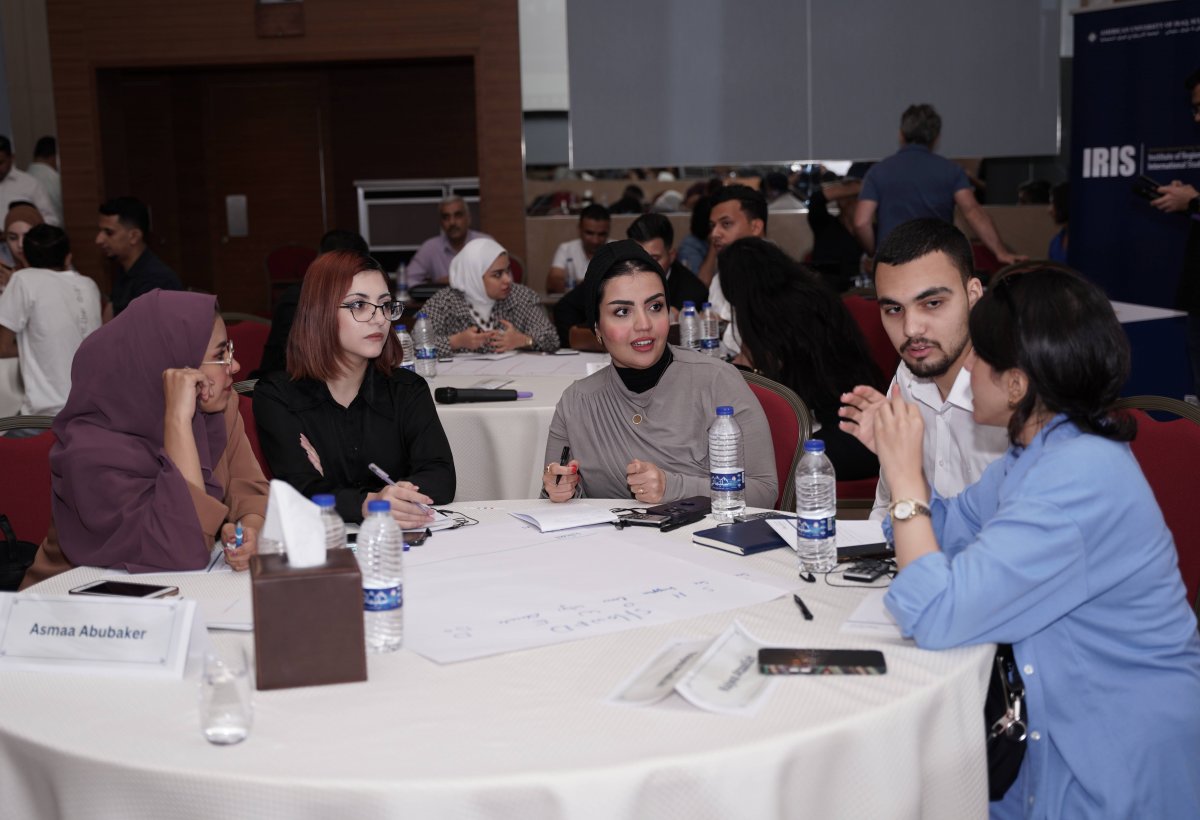
Citizen Science Training
The workshop began by introducing participants to the concept of citizen science and its significance in contexts like Iraq. In a country where government-led environmental monitoring is limited, citizen science offers a way for communities to take an active role in identifying and addressing environmental issues. The students were trained in essential topics, such as climate change, environmental health, research methodologies, and the ethical considerations of conducting fieldwork. They also received practical training on how to use tools like portable water and air quality testing kits, enabling them to collect reliable data in their communities.
Environmental Testing
On the second day, the students applied what they had learned during a field visit to environmental hotspots around Sulaymaniyah. Guided by experts, they conducted hands-on testing of water and air quality, gathering crucial data on pollution levels and potential environmental hazards. This fieldwork was more than just an exercise—it was a real-world application of citizen science, which will prepare students to conduct similar efforts in their communities. Participants also had the opportunity to engage with the Waterkeepers Iraq organization, discussing the complex social, political, and economic factors that contribute to environmental degradation in the region.
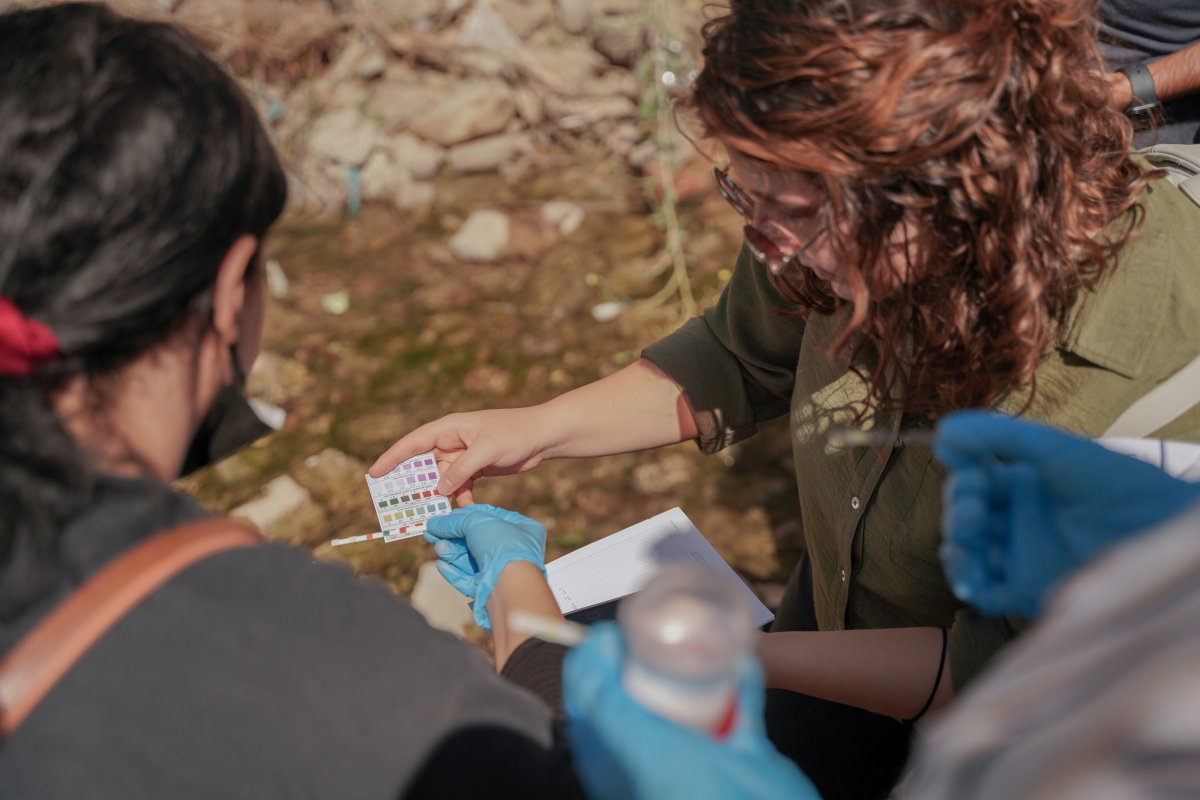
Results and Next Steps
The final day focused on analyzing the data collected during the fieldwork. Participants engaged in discussions about the environmental risks they had identified and how these findings could be used to influence policy or raise public awareness. The experts guided them on how to interpret their data and use it to advocate for stronger environmental protections. The workshop also highlighted the importance of grassroots involvement in environmental governance, with sessions on how to launch citizen-led campaigns. The event concluded with a commitment from IRIS to support these citizen scientists as they work to lead environmental initiatives in their communities.
This workshop is part of a larger effort under the "Citizen Science & Environmental Action Network in Iraq" initiative, launched by IRIS in 2024 in partnership with PAX for Peace. The initiative aims to address Iraq's growing environmental challenges through collaborative efforts that engage civil society, academia, government agencies, and local communities.

